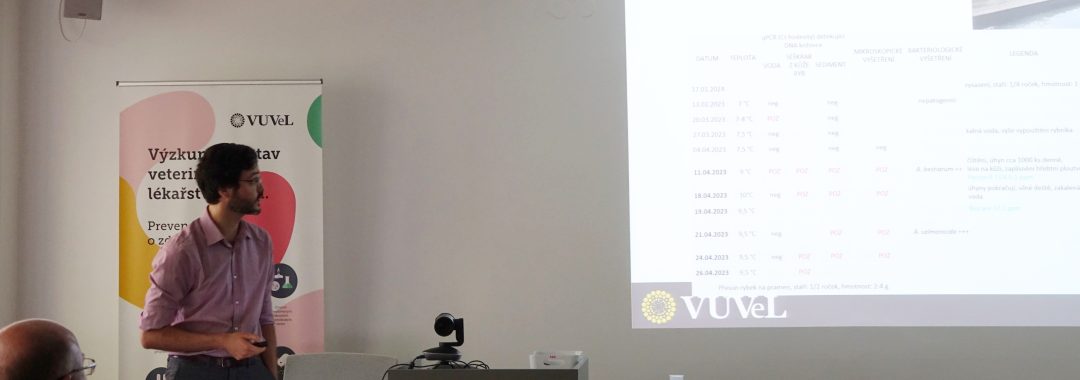In early September, the Veterinary Research Institute (VRI) hosted another professional seminar of the VRI ACADEMY series, this time focusing on infectious diseases in farmed fish. The primary parasitic infection discussed was that caused by Ichthyophthirius multifiliis, which affects all species of freshwater fish, including aquarium fish. The parasite is widespread in our waters, but severe infections are particularly harmful in the juvenile categories of reared salmonids. The pathogenesis of the disease was discussed in detail, including the duration of the parasite´s life cycle, particularly in relation to external climatic conditions. The clinical manifestations of the disease were reviewed, and various treatment options were discussed. However, treatment options are significantly limited, especially considering the lack of registered pharmaceuticals for aquaculture in the Czech Republic and Europe. Current practices, which rely more on disinfectant interventions in the farm environment, were also described. This highlights the critical role of prevention, which involves several measures preventing the entry of parasites into the farm, maintaining the health of the fish at all times, performing regular preventive examinations and investigations for early detection of infections, managing fish stock, disinfecting the breeding environment, and drying and disinfecting the bottoms of the breeding tanks. Research on testing potential drugs for treating this infection, developing technology for producing pharmaceuticals or medicated feed mixtures with controlled drug release, and creating procedures for non-invasive early diagnosis of the infection were presented. These research activities fall within the scope of the research project NAZV QK22010369, in which Tekro, spol. s r.o., participates alongside the VRI. A proceedings of materials from the presentations has been arranged and is available at https://www.vri.cz/archiv-vuvel-academy-a-ctpz/.
Doc. Soňa Šlosárková, Ph.D.,
Guarantor of the VRI ACADEMY project


